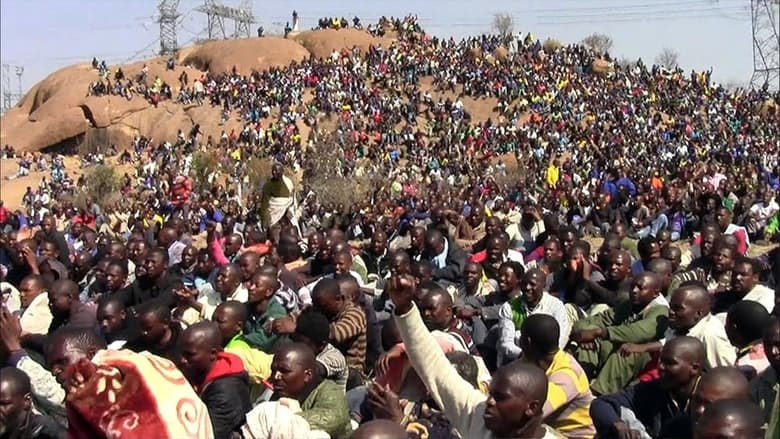
In August 2012, mineworkers in one of South Africa’s biggest platinum mines began a wildcat strike for better wages. Six days later the police used live ammunition to brutally suppress the strike, killing 34 and injuring many more. Using the point of view of the Marikana miners, Miners Shot Down follows the strike from day one, showing the courageous but isolated fight waged by a group of low-paid workers against the combined forces of the mining company Lonmin, the ANC government and their allies in the National Union of Mineworkers.
Reviews
Thanks for the memories!
Slow pace in the most part of the movie.
A brilliant film that helped define a genre
A movie that not only functions as a solid scarefest but a razor-sharp satire.
Director Rehad Desai pulls no punches in this investigation of the events and incidents leading up to the massacre of striking platinum miners at Marikana in August 2012 in which over 100 men were shot, 34 of whom died.The format of film is relatively straight-forward. After showing live footage of the police opening fire on the striking miners, Desai examines events in the preceding days and also takes us further back to the vexed relationship between the trade unions and the ruling African National Congress in South Africa. While the police hierarchy takes a battering in the location footage shot before the massacre and the hearings held in the aftermath, Desai's real target is ex- unionist turned multi-millionaire businessman and now deputy president of South Africa, Cyril Ramaphosa.Once a respected figure in the ANC and a crucial component of the transition to democracy that saw South Africa through the trauma and liberation of the 1994 elections. Desai uses what he can get from the eloquent and evasive Ramaphosa to suggest that behind the brutality (and cold-bloodedness in some cases) of the police action, greater forces were at work to break the strike and cauterise the wound that divided the trade unions from their political patrons.While the commission of inquiry material is rather dry, the interviews are great, but what is most engrossing is the dialogue that one hears (for the first time) between the miners and the police in the days before the massacre.One could accuse Desai of not presenting the full picture, of not addressing, for example, the stories that suggest the miners had gathered with an intention to engage in conflict with the police. But I'm with Emile de Antonio on this one: objectivity is a myth and there is no such thing as an unbiased documentary. Desai delivers a provocation, a call to consider the cost of government and capital turning their combined power on the poor.
Top Streaming Movies












